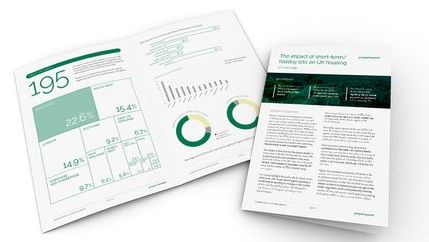
To qualify as an FHL, properties must be available for short-term letting to the public for 210 days and let for 105 days or more in each tax year but should not be used as a long-term let over 31 days for significant periods.
Policy positions
Propertymark has been outspoken over how the proliferation of short-term lets risks reducing the size of the private rented sector. Whilst short-term lets provide flexibility for property owners and give tourists more accommodation options, this should not prevent local people from being able to buy or rent homes in their area.
When the tax plans were initially announced as part of the Spring Budget in March 2024 the then Chancellor, Jeremy Hunt, stated they were intended to make the tax system more efficient and support people to live in their local area.
When will the changes happen?
The change will take effect from 1 April 2025 for Corporation Tax and for Corporation Tax on chargeable gains, and on or after 6 April 2025 for Income Tax and Capital Gains Tax.
After repeal, former furnished holiday let properties will form part of the person’s UK or overseas property business and be subject to the same rules as non-furnished holiday let property businesses.
What will be different?
Currently, properties classed as FHLs qualify for exemption from finance cost restriction rules, more beneficial capital allowances, access to relief on chargeable gains for trading business assets, and inclusion as relevant UK earnings when calculating maximum pension relief. This will all be repealed by new legislation set to be introduced shortly.
Transitional rules set out
HMRC has already described what will happen as existing FHLs transition to the new regime. This includes details of how existing capital allowance pools can be used, carrying forward losses, multi-year reliefs that will be honoured, and new eligibility that may apply, such as replacement domestic item relief.






